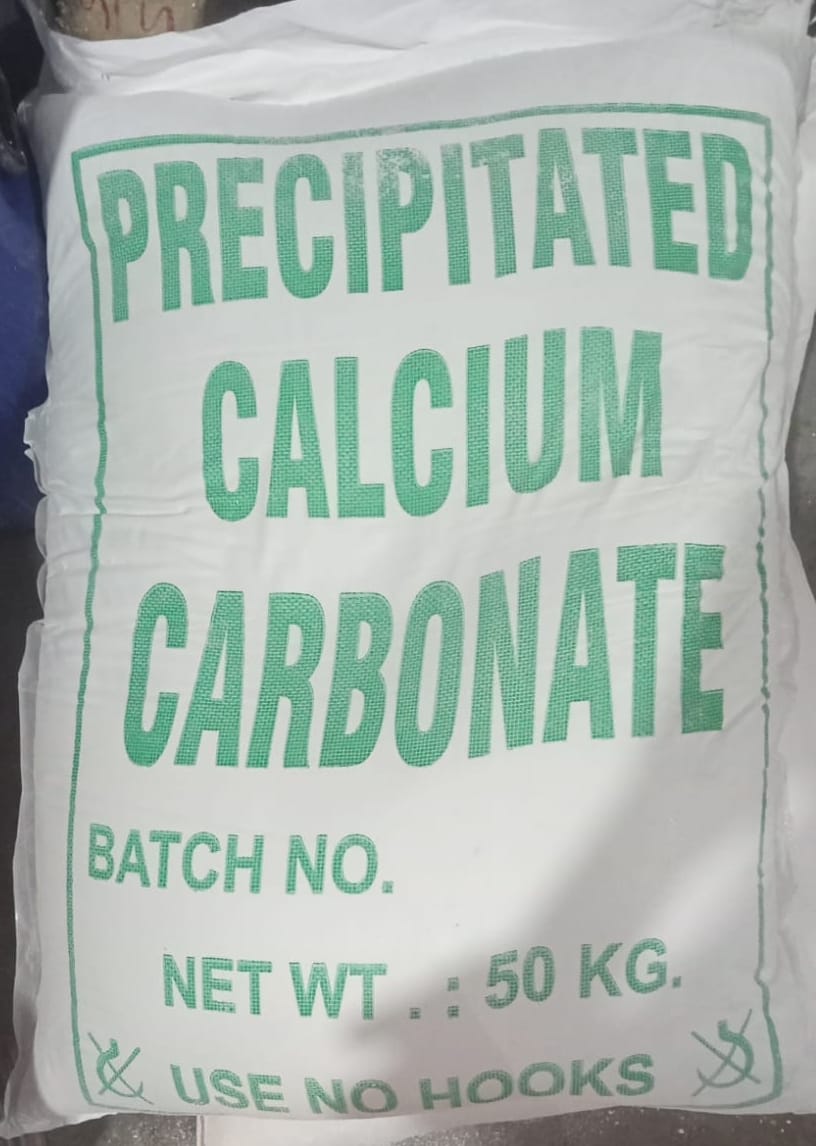
Calcium Carbonate
Technical Grade 98.5%
₹15.00
Calcium Carbonate is a common chemical compound, CaCO₃, made of calcium, carbon, and oxygen. Found naturally in rocks like limestone and the shells of organisms, it is also used as a dietary supplement for calcium, an antacid for heartburn, and a filler and component in industrial products such as paint and paper.
Characteristics and Properties:
Chemical Formula: CaCO₃
Appearance: Typically a white, powdery solid
Composition: Contains calcium (Ca), carbon (C), and oxygen (O)
Ubiquitous: It is one of the most abundant compounds on Earth.
Technical Specifications for Calcium Carbonate:
Chemical Specifications:
Chemical Formula: CaCO₃
Molecular Weight: 100.09 g/mol
Assay (Purity): Typically a minimum of 98.5% or higher, depending on the grade.
Moisture Content: Often a maximum of 0.2%.
Heavy Metals: Limits are set for various heavy metals, such as lead (Pb), arsenic (As), and mercury (Hg).
Insoluble Matter: Low maximum limits for substances insoluble in acid (e.g., ≤0.2%).
Other Impurities: Specifications for other impurities like sulfates, chlorides, and magnesium/alkali ions are also included.
Physical Specifications:
Form: A fine white powder.
Whiteness: A minimum ISO brightness, with specific values varying by application.
Particle Size: This is a crucial specification, defined by mesh size (e.g., 1880, or median particle sizes ranging from 1.95 µ to 12.5 μ).
Specific Gravity: Approximately 2.7 g/cm³ for calcite.
Bulk Density: Can vary but is sometimes specified for certain applications.
Identification:
CAS Number: The CAS number for Calcium Carbonate (CaCO₃) is 471-34-1
Uses and Applications of Calcium Carbonate:
Calcium carbonate most widely usesd as a filler, pigment, and reactive chemical. Key applications include construction (cement, concrete, mortar), the paper industry (filler, coating, pigment), and plastics and paints (filler, reinforcing agent). It also serves in agriculture (soil conditioning), pharmaceuticals (antacids, supplements), environmental applications (water treatment), and as a component in adhesives, sealants, and food products.
Construction and Building Materials:
Cement, Lime, and Concrete: Calcium carbonate is a primary ingredient in these materials, acting as a filler that increases durability, strength, and workability.
Building Components: It is used in roofing shingles, pipes, blocks, and tiles to enhance performance and appearance.
Asphalt: It improves the workability and mechanical strength of asphalt mixtures.
Paper, Plastics, Paints, and Coatings
Paper: It acts as a filler and coating pigment, providing whiteness and improving quality.
Plastics: It serves as a reinforcing filler, enhancing mechanical properties and reducing cost.
Paints: It is used as a filler and white pigment, contributing to opacity and brightness.
Environmental Applications:
Water Treatment: Neutralizes acidity and removes impurities in water and sewer treatment plants.
Soil Conditioning: As agricultural lime, it neutralizes acidic soils, improves pH, and enhances crop yields.
Pharmaceuticals and Healthcare:
Antacids: It is an active ingredient that neutralizes stomach acid.
Calcium Supplements: A key source of dietary calcium for bone health.
Toothpaste: It is used for its abrasive and whitening qualities.
Agriculture and Animal Feed:
Fertilizers: It provides essential calcium for plants and helps stabilize soil pH.
Animal Feed: It is added to feed for livestock as a source of calcium.
Food and Other Industries:
Food Additive: It is used as a calcium fortifier and a natural whitening agent in various food products.
Adhesives and Sealants: A key component in binders and sealants, improving their functionality.
Textiles: It is used in the manufacturing of textiles.
Hazards of Calcium Carbonate:
Hazards of calcium carbonate include skin and eye irritation from direct contact, respiratory irritation from inhaling dust, and gastrointestinal upset (like bloating, constipation, or nausea) from ingestion. Excessive intake can lead to hypercalcemia (high blood calcium), which can cause kidney stones, confusion, and cardiac issues such as irregular heartbeats. Individuals with pre-existing conditions or those taking certain medications should consult a healthcare professional before taking calcium carbonate supplements.
Hazards for Health:
Skin and Eye Contact: Direct contact with calcium carbonate powder or crystals can cause irritation to the skin and eyes.
Inhalation: Inhaling the dust of calcium carbonate can irritate the nose, throat, and lungs, leading to coughing.
Ingestion: Consuming large amounts can lead to stomach discomfort, nausea, vomiting, constipation, and bloating.
Packaging: 50 Kg. Bag
MOQ: 50 Kg.
Estimated Lead Time: 1 day
"in stock"
